3 things NHL teams can learn from the juggernaut Panthers
No shouts to the heavens. No jumps for joy. No exuberance, period.
The Florida Panthers' celebration on Wednesday was about as tame as they come for a team that had just clinched a spot in the Stanley Cup Final.
"It's all business," forward Matthew Tkachuk told reporters after Florida's come-from-behind 5-3 victory over Carolina. "We've got a bigger job to do."
For a third straight year, the Panthers will compete for the Cup, having raised it in 2024 and lost it in 2023. The dominance extends further: In 2022, with roughly the same core group of players but a different head coach, the club posted a league-best 58-18-6 record before bowing out in Round 2.
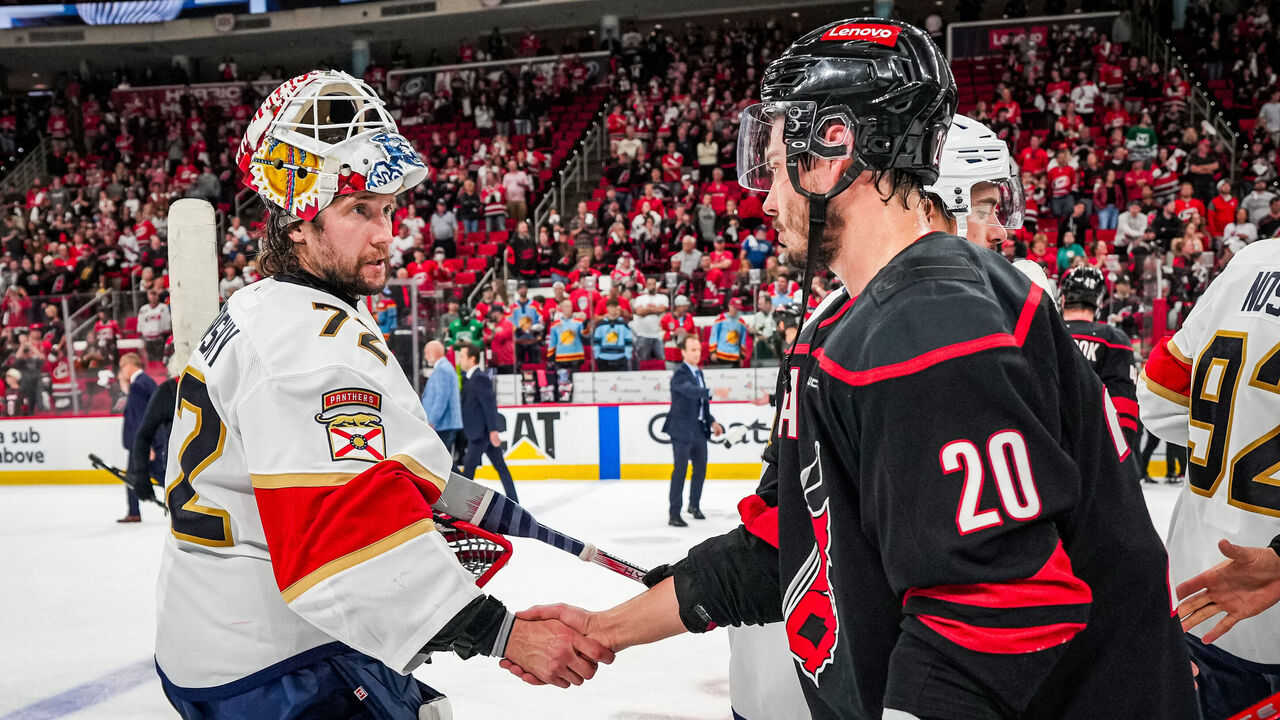
Putting aside the nontransferable parts of the Panthers' existence (notably low taxes and beautiful winter weather), what can the NHL's 31 other teams learn?
theScore asked three people for their big-picture takeaways from this Panthers run: Jack Han, a hockey coach and analyst with AHL and NHL experience and the author of the 2025 Hockey Tactics ebook; an anonymous member of an NHL front office; and an anonymous NHL assistant coach.
Full-scale buy-in, savviness matters
The ability to limit the opposition's offensive zone time and puck possession has become a hallmark of coach Paul Maurice's era in Florida. The Panthers pressure the puck and gap tightly, especially in the neutral zone, and it often results in scoring chances and goals the other way. They love a counterpunch.
"They have an incredible commitment to a playing style and identity that pushes the tempo and makes it really challenging for opponents," the front-office member said. "And they obviously have tremendous buy-in."
"Resilience sticks out," the coach said, adding: "They have skilled players who are also gritty. And it's the will - grit - that comes out this time of year."
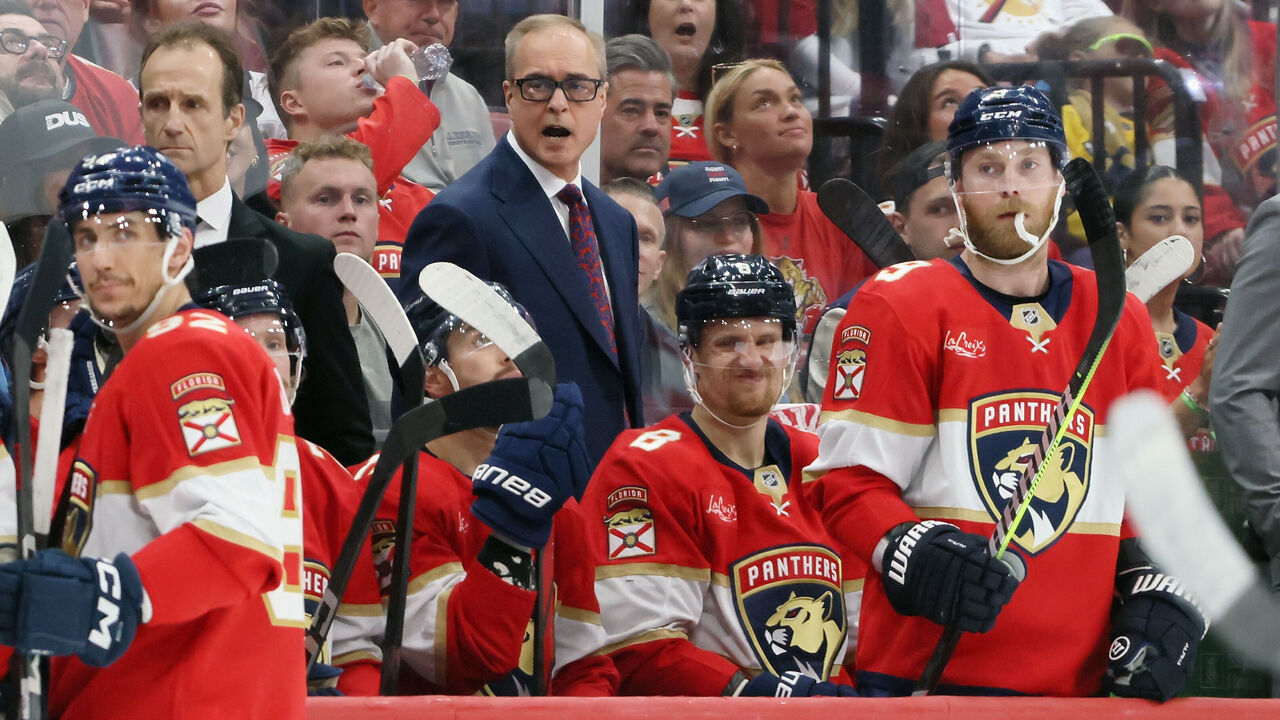
That buy-in promotes composure and stubbornness. The Panthers have proven time and again that they're perfectly comfortable in uncomfortable situations. They recorded seven comeback wins in the 2024 playoffs; after Wednesday's win, they have four this year. Florida dropped the first two games against Toronto in Round 2, didn't flinch, and went on to win four of the next five.
Defenseman Nate Schmidt shared his early impressions of the Panthers' culture in late October. The 2024 free-agent signee was blown away by the attention to detail by the coaches and players. He said Panthers players are constantly discussing on-ice tactics with each other, and in those early days Schmidt heard from a few teammates about how to execute "Panther hockey."
"It's a hell of a self-policing system," he told theScore.
So, what are the lessons?
One, competitiveness and malleability might be underrated skills. That may seem crazy - who doesn't value competitiveness? - but there's no denying Florida has a disproportionate number of ultra-competitive, versatile players.
Two, savviness matters. So many Panthers find a way to contribute on off nights through strong wall play, penalty drawing, or other unglamorous acts.
Three, it probably doesn't hurt to have a diverse set of leaders. The loquacious Maurice is a much different person and leader than introverted captain Aleksander Barkov, who's much different than Tkachuk, a pesky, heart-and-soul type. The different styles complement each other.
Don't shrug off pro scouting
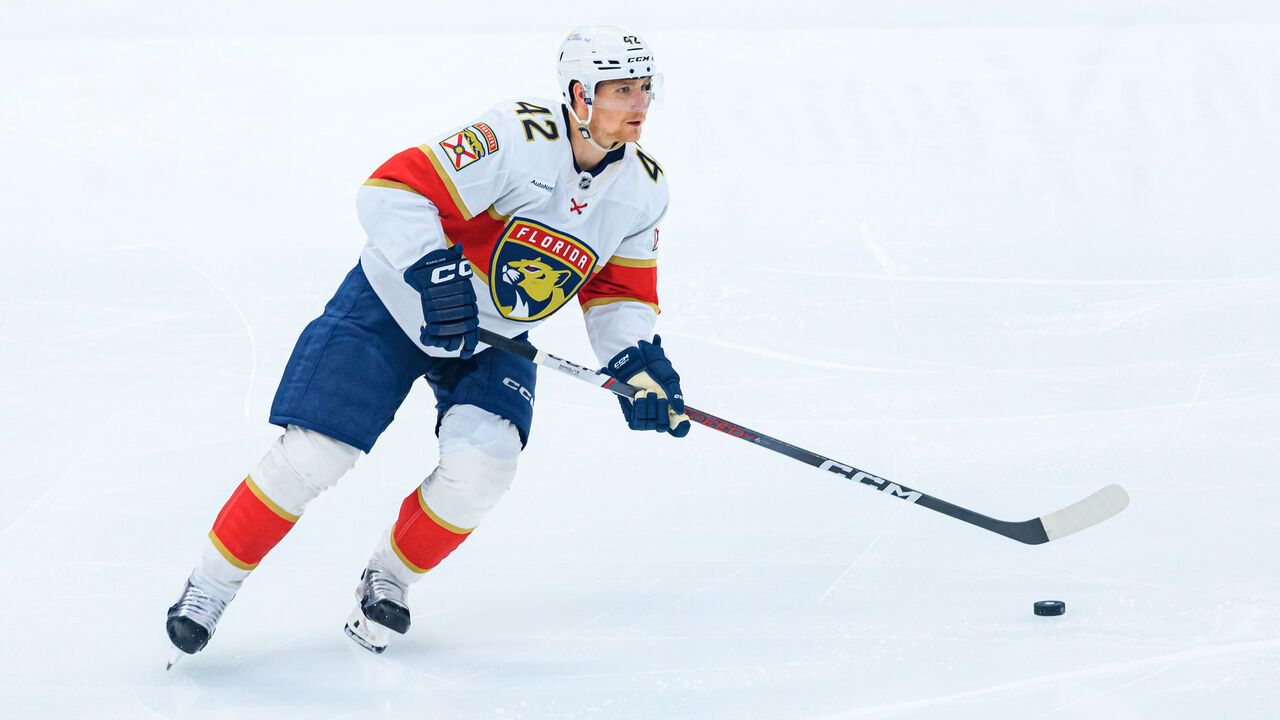
The Panthers have dressed 23 players this postseason. Only four - Barkov, Aaron Ekblad, Anton Lundell, and Mackie Samoskevich - are draft picks. The other 19 were acquired through free agency (11), trade (seven), or waivers (one).
All of those acquisitions required input from Florida's pro scouting staff, which isn't large by NHL standards (four people are listed under "pro scout" in the team's online staff directory) but is clearly valued by management. Eetu Luostarinen and Niko Mikkola are two standout finds, while the early 2021 pickup of Gustav Forsling is arguably the greatest waiver claim in league history.
"I have no information on how the Panthers do it - their process, what's going on behind the scenes - but if you look just at outcomes, it's impressive," Han said. "They bring in all these players and they become key contributors."
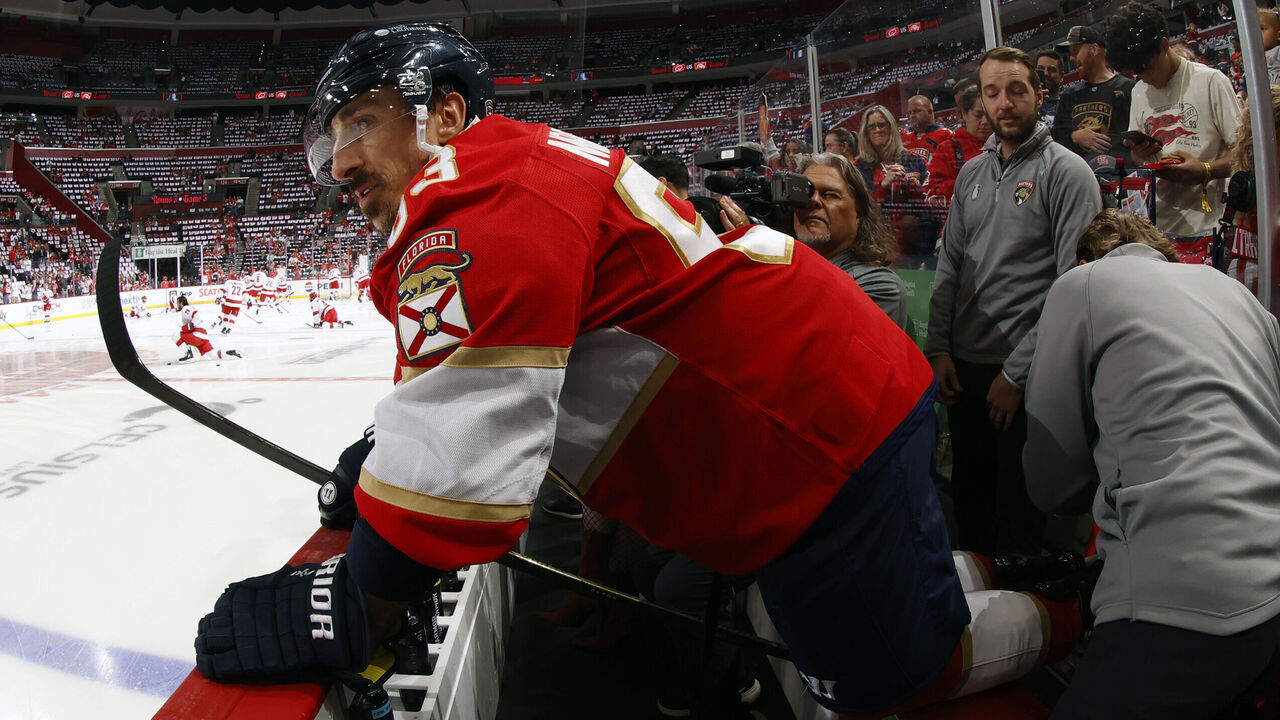
As Han points out, the Panthers are constantly upgrading, and each upgrade has a cascading effect - say, the third-line center bumps down to the fourth line and suddenly dominates. Improving depth piece by piece also allows a star player like Tkachuk to fly under the radar if he logs a poor game or series. Nobody cares to break down the winger's meh postseason because the Lundell-centered third line has sparkled, and the team keeps advancing.
The amateur scouting process is, to use Han's words, "very rigorous" across the board in the NHL. There's a ton of resources dedicated to finding the right players, and the methodologies are detailed. By contrast, pro scouting is "relatively haphazard" for many teams. The investment isn't particularly high.
"There are some instances in the NHL where pro scouting is a place where you give people breaking into the front-office side of the game some experience," Han said. "It could be a recently retired player. It could be so-and-so's brother or so-and-so's son. I would say that across the league pro scouting is probably the area where there's the least amount of craftsmanship."
The lesson? Reassess your pro scouting processes. Are you doing enough?
Find balance between risk, discipline
The Panthers haven't made a pick in the first round of the draft since 2021 (Samoskevich, 24th overall) and don't have a first-rounder until 2028, thanks to trades for Tkachuk (2025), Seth Jones (2026), and Brad Marchand (2027).
Trading firsts isn't a novel strategy. Most win-now GMs do it. What's different about Florida's Bill Zito is how often he's put his neck on the line. The Tkachuk trade, for one, looks like a no-brainer in hindsight, but sending 100-point winger Jonathan Huberdeau, top-pair defenseman MacKenzie Weegar, a decent prospect, and a first to Calgary was a massive gamble in July 2022.
"Zito has balls and that's what I respect about him," the front-office member said. "He could have gotten fired over a lot of decisions he made if they had gone the other way. He's not risk-averse, that's for sure."
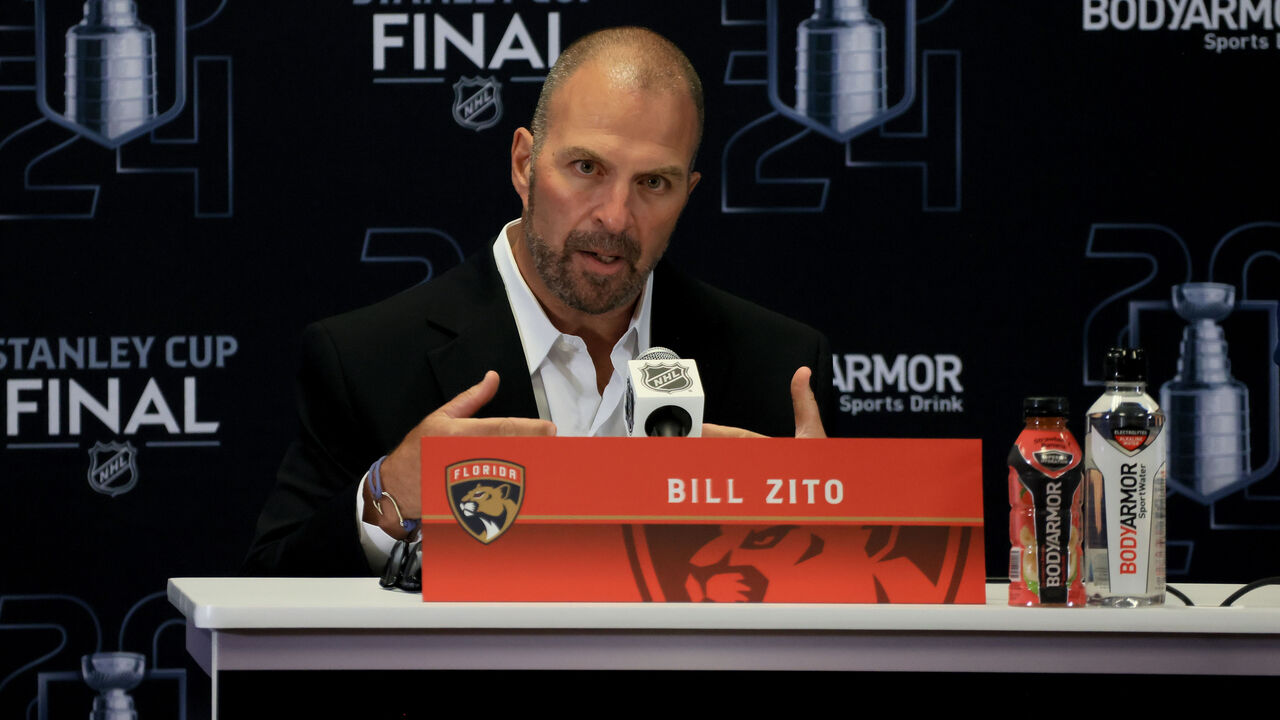
Zito's paired this aggressive streak with a disciplined approach to pending unrestricted free agents. The Panthers don't overpay on extensions but aren't opposed to re-signing key pieces. For every Brandon Montour who leaves town for a payday, there's a Sam Reinhart - a player who wants to remain a Panther and thus finds common ground (i.e. a team-friendly contract) with the club.
Regardless of the player's stance, Zito doesn't get into public spats. The GM wishes outgoing players good luck, then pivots to a replacement. No drama.
"Who's the last player to get run out of Florida?" Han asked rhetorically.
Zito, 60, is a lawyer by trade who previously worked as an agent for NHLers, including Tuukka Rask, Tim Thomas, and Brian Rafalski. He broke into hockey operations in 2013, spending seven years in Columbus as an assistant GM. Hired by the Panthers in 2020, he's been nominated for the Jim Gregory General Manager of the Year Award four times in five seasons.
The lesson? Be honest. Be fair. Be decisive. A good reputation will follow.
John Matisz is theScore's senior NHL writer. Follow John on Twitter (@MatiszJohn) or contact him via email ([email protected]).
HEADLINES
- Nelson bags hat trick in Avalanche's win over Maple Leafs
- Geekie's late goal lifts Bruins over Habs in key Atlantic Division clash
- Big board: Top 25 players who could be dealt before NHL trade deadline
- Lyon ties Sabres record with 9th straight win in shutout victory vs. Isles
- Matthews glad Marner got 'some cheers' in return to Toronto